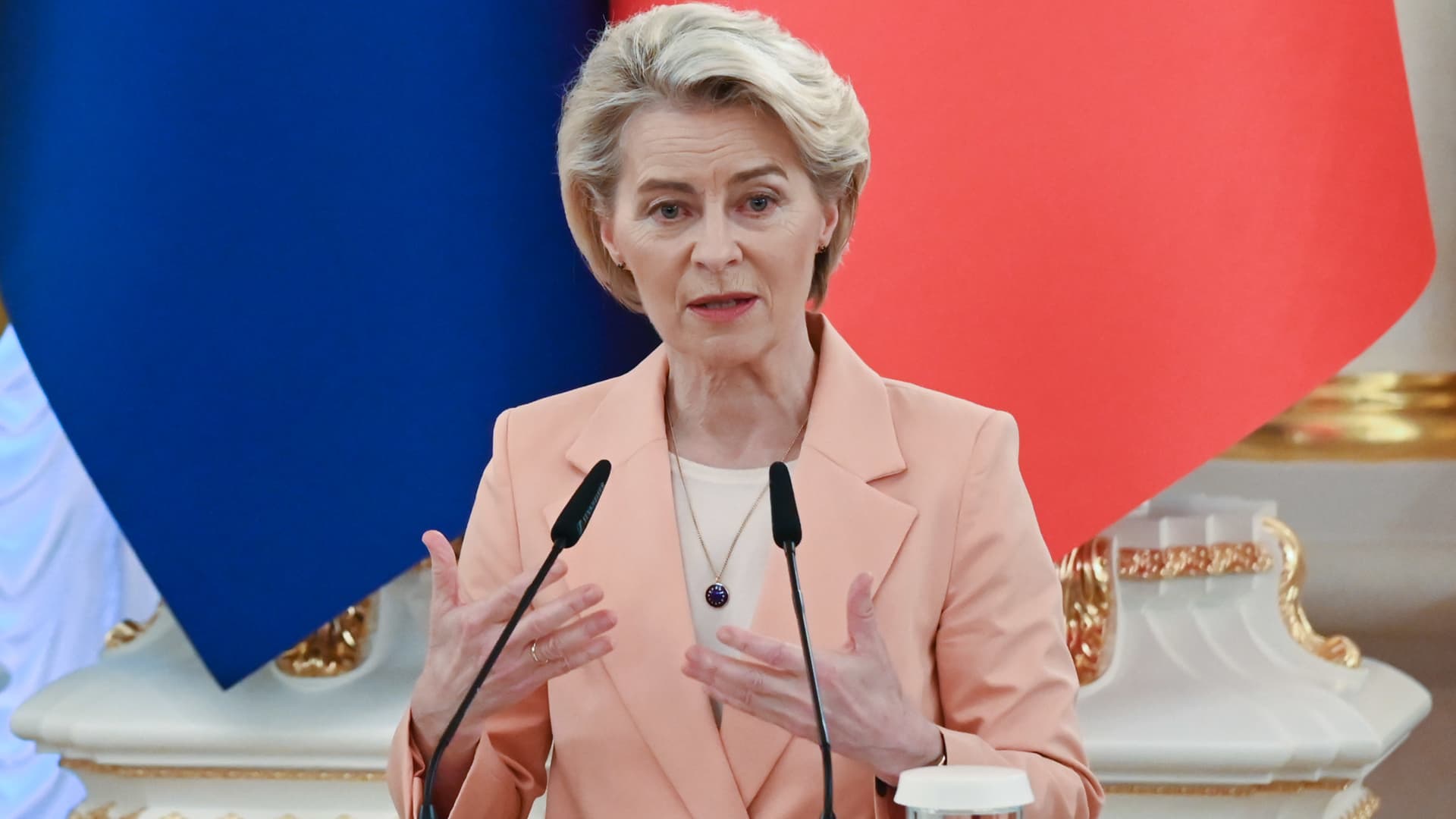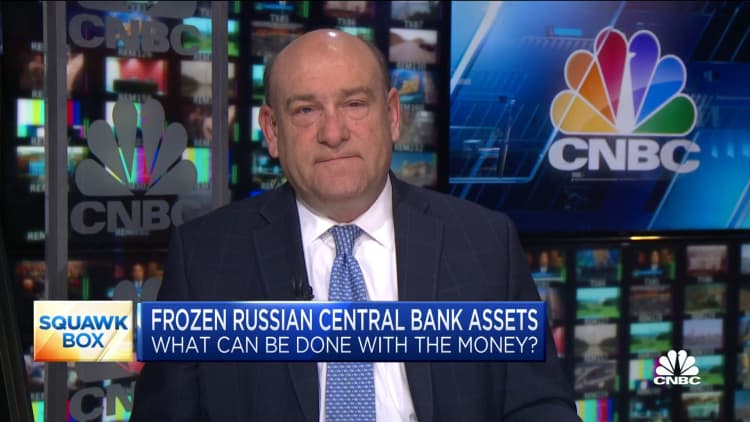
28 Feb EU should discuss using frozen Russian assets to aid Ukraine military: von der Leyen
President of the European Commission Ursula von der Leyen is speaking during a joint media conference with Prime Minister of Belgium Alexander De Croo, Italian Prime Minister Giorgia Meloni, Prime Minister of Canada Justin Trudeau, and President of Ukraine Volodymyr Zelensky, following their meeting in Kyiv, Ukraine, on February 24, 2024, amid Russia’s invasion of Ukraine. The European officials and Canada’s Prime Minister are visiting the capital Kyiv on the second anniversary of the start of the Russian full-scale invasion in Ukraine. (Photo by STR/NurPhoto via Getty Images)
STR | Nurphoto | Getty Images
European leaders should discuss using the profits from frozen Russian assets to boost Ukraine’s military in its defence efforts against Moscow, European Commission President Ursula von der Leyen said Wednesday.
“It is time to start a conversation about using the windfall profits of frozen Russian assets to jointly purchase military equipment for Ukraine,” she said in a speech before the European Parliament.
“There could be no stronger symbol and no greater use for that money than to make Ukraine and all of Europe a safer place to live,” von der Leyen noted. “Ultimately, this is about Europe taking responsibility for its own security.”
Around 300 billion euros ($324 billion) worth of Russian central bank assets have been frozen to date by the European Union and G7 nations in the wake of the Ukraine war. Crucially, frozen assets are, by definition, temporarily retained rather than fully seized with the ability for reallocation. Questions remain over the legality of such a confiscation and re-distribution and their due processes.
Von der Leyen’s comments come after U.S. Treasury Secretary Janet Yellen on Tuesday said it is important to find a way to unlock the value of frozen assets to bolster Ukraine, stressing there is a “strong international law, economic and moral case” to do so and that it was crucial for allies to work together on the matter.
Back in 1992, the U.N. Security Council authorized a similar step to seize frozen Iraqi assets and reroute them toward compensating the victims of Baghdad’s invasion of Kuwait.
Now in its third year, Russia’s full-fledged invasion has razed several settlements in Ukraine, including carrying out aerial attacks against Kyiv. The World Bank in March last year estimated that $411 billion would be needed for the reconstruction and recovery of Ukraine, with costs likely to have deepened since.

The European Union has been considering using profits from Russian frozen assets to support Ukraine for some time now. This has included military support as well as helping Ukraine with its re-construction efforts. However, officials have expressed concerns about both the legality of using frozen assets, as well as potential fallout for global currency markets.
“The cost of insecurity, the cost of a Russian victory, is far greater than any saving we could make now. And this is why it is time for Europe to step up,” von der Leyen said Wednesday.
Earlier this year, the European Union adopted a law to ensure that windfall profits from frozen Russian central bank assets were put aside, in what was widely seen as a first step towards a potential re-allocation of the funds.
Late last year, the Kremlin said that it would retaliate if the European Union used profits from frozen assets to support Ukraine.
Von der Leyen on Wednesday also called for EU leaders to think about and expand on their defense policies. While the risk of war “should not be overblown,” countries must be prepared, she said. This includes rebuilding and modernizing armed forces in member countries, von der Leyen said.
“The threat of war may not be imminent, but it is not impossible,” she said.
